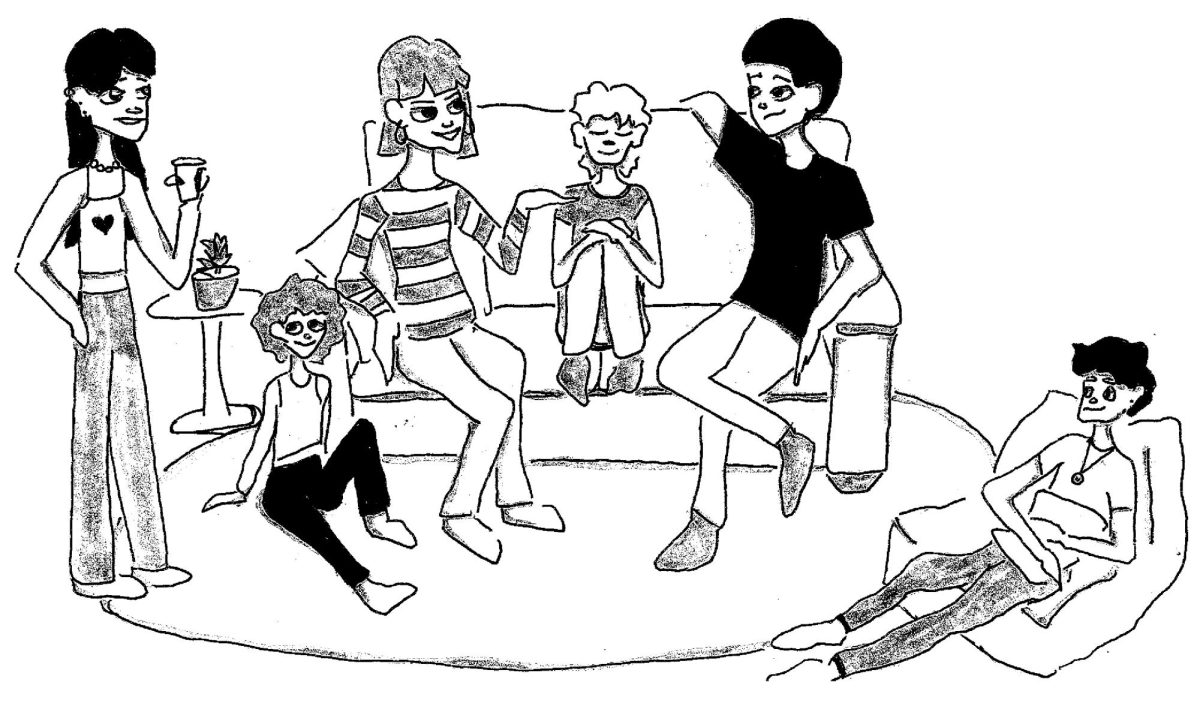The found family trope has always been one of my favorite tropes in literature. The found family trope is when a group of people form their own family. This is usually done through shared experiences and connections. I love this trope for several reasons, namely that there’s a certain comfort in knowing that there are people who will love you regardless of biological relation. They become your home and make you feel safe. Then, there’s the fact that the people chose you not because of blood relation but because they genuinely love you. They’re not obligated by blood relation, just the deep bonds you share.
One of my favorite books “The House in the Cerulean Sea” by TJ Klune features the found family trope. Through character building and setting, Klune did a good job of executing the trope, making it a great example of a found family book.
The book follows Linus Barker, a case worker in the Department in Charge Of Magical Youth who leads a solitary life with his cat Calliope. One day, he’s unexpectedly assigned to investigate the Marsyas Island Orphanage, where six ‘dangerous’ children live. These children are Talia (a gnome), Theo (a wyvern), Chauncey (a green blob), Phee (a sprite), Sal (a were-Pomeranian), and Lucifer ‘Lucy’ (the Antichrist). The orphanage’s caretaker is Arthur Parnassus, a man who has a deep bond with the children under his care.
Due to negative experiences with previous caseworkers, the kids initially don’t trust Linus until he shows them that he truly has their best interests at heart. Even then, Linus tries to maintain his distance from the children since he has a rule not to get attached to the children he’s working with. However, that rule is tested at the Marsyas Orphanage, where Linus sees how much everyone there cares for one another and he starts to feel at home with all of them.
The relationships Linus develops with the children and Arthur is touching to read about. One scene that highlights how close Linus has become with them is when Lucy has a nightmare. As the Antichrist, Lucy’s dreams manifest in erratic ways. In this case, Lucy’s nightmares end up destroying most of his beloved record collection. This is where we see Arthur and Linus working together, like a parental unit.
As their primary caretaker, Arthur is familiar with the children and knows how to console them. It’s clear how much he loves and cares for the children, and that he will do anything for them. In the nightmare scene, Arthur helps Lucy calm down from his nightmares. He’s seen holding him close and whispering comforting words to Lucy. This allows Lucy to awake from his nightmares.
As Arthur continues to comfort Lucy, Linus steps in to help too. Although he doesn’t give physical comfort like Arthur does, Linus makes sure to give Lucy the verbal reassurance he needs. He acknowledges how scary bad dreams are, but also reminds Lucy that what he saw wasn’t real and that he’s ok. He comforts Lucy about his broken records, leading to Arthur saying they can go into town to replace the records.
The found family aspect made this book feel like a warm hug. All the characters know what it’s like to be the odd one out. As a result, they become their own family. The way personal relationships were shown and developed was wholesome. From Lucy calling Sal his brother, to Theo giving Linus a button from his treasure hoard, to any time Arthur encourages the kids. Moments like these add to the wholesome vibes of the book, and the found family aspect as a whole.



















